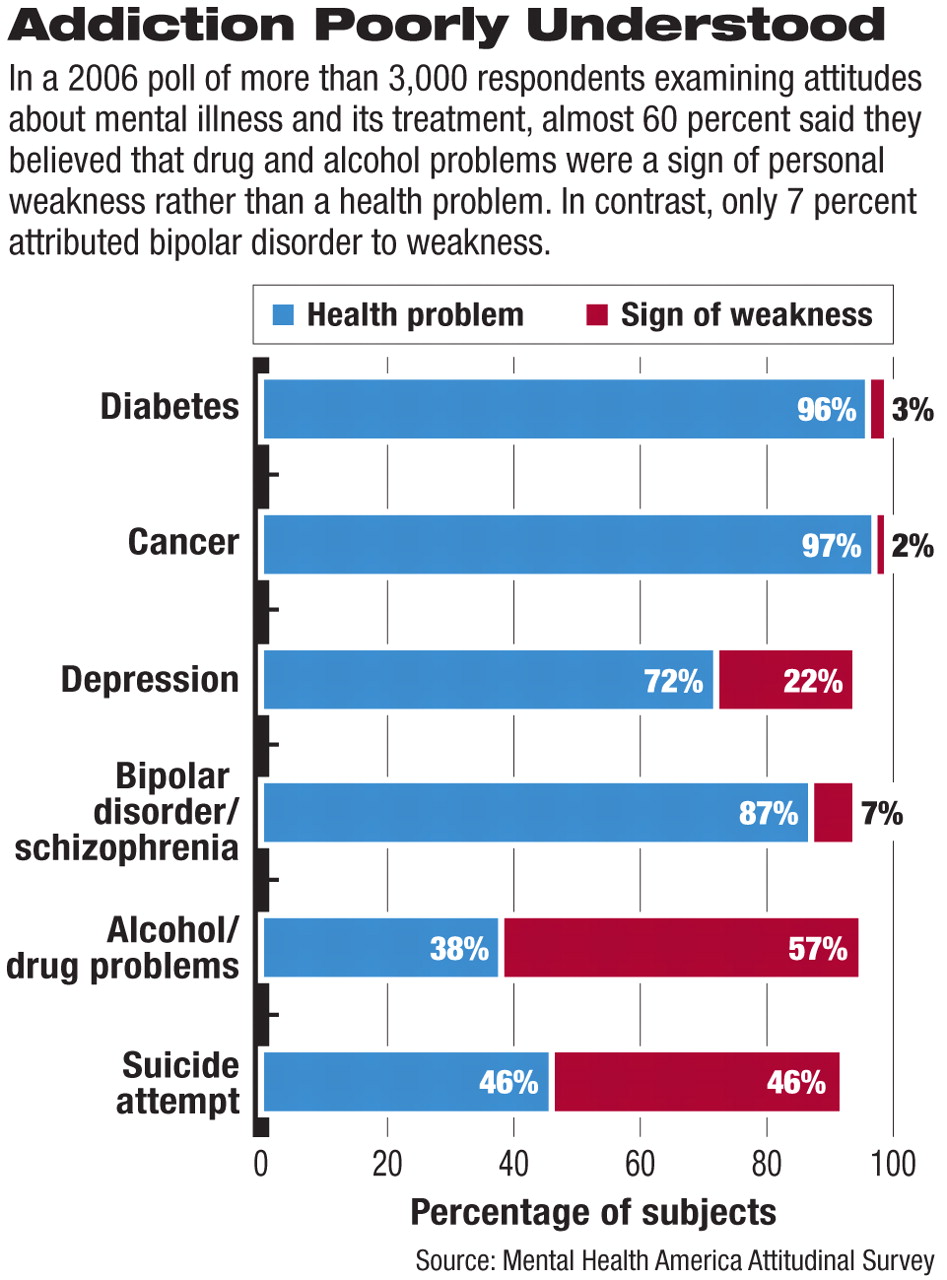The public has become more knowledgeable about mental illness and its causes over the past decade, according to survey results released by the advocacy group Mental Health America (MHA) in June. However, stigma is far from eradicated, especially when it comes to issues surrounding suicide and drug and alcohol use disorders.
“We've come a long way,” said MHA president and CEO David Shern, Ph.D., in a press release announcing the findings. He pointed out that the vast majority of people now see mental illnesses such as depression as a health problem and not a personal weakness.
This was not the case just 10 years ago. The results of a 1996 MHA survey titled “American Attitudes About Clinical Depression and Its Treatment” showed that only 38 percent of respondents viewed depression as a health problem as opposed to a sign of personal weakness. Last year, however, 72 percent considered depression to be a health problem.
To illuminate trends in public attitudes toward mental illness over time, researchers from International Communications Research polled a nationally representative sample of 3,040 people aged 18 and older from October 10 to November 1, 2006, via telephone and the Internet.
For the 1996 survey, 1,166 people aged 18 and older were contacted by phone from January 19 to January 26, 1996, to measure awareness of and attitudes about clinical depression.
While attitudes about depression have improved in the past decade, stigma still characterizes the public's view of mental health problems other than depression—for instance, 38 percent of respondents to last year's survey viewed drug and alcohol abuse as a health problem, but 57 percent labeled them a sign of personal weakness. In comparison, 97 percent and 96 percent of respondents viewed cancer and diabetes, respectively, as health problems rather than a personal weakness.
Additional findings highlighted the stigma that continues to surround suicide and suicidal behaviors. For example, respondents were evenly split on the question of whether suicide is a health problem or a sign of personal weakness (46 percent endorsed each response). In addition, respondents underestimated the prevalence of suicide: 63 percent believed that homicides outnumber suicides, when in fact suicide deaths outnumber homicides by a ratio of 3 to 2—there are about 30,000 suicides and 18,000 homicides in the United States each year.
Other survey findings:
•
89 percent of respondents believe that people with mental illness can be productive members of society.
•
79 percent believe that most mentally ill people are not violent.
•
85 percent would feel comfortable sharing with friends or co-workers the fact that they or someone close to them has diabetes, while 82 percent would do so if a cancer diagnosis was involved. This rate starts to drop, however, when it comes to mental illness—67 percent would feel comfortable telling others they or a loved one has depression, followed by drug and alcohol problems (62 percent), a suicide attempt (60 percent), and bipolar disorder or schizophrenia (58 percent).
•
63 percent reported feeling comfortable interacting with someone being treated for depression, while 46 percent said they would be comfortable with someone receiving treatment after a suicide attempt.
“Societal acceptance and support are instrumental in helping individuals and families facing mental health issues to recover and enjoy healthy, fulfilling lives in the community,” Shern said.
Information about the survey “Understanding of and Attitudes Towards Mental Illness” is posted at<www.mentalhealthamerica.net/go/surveys>.▪

